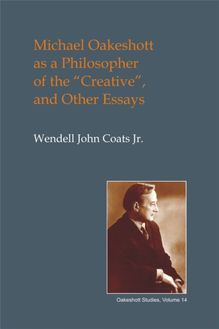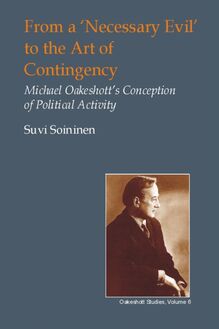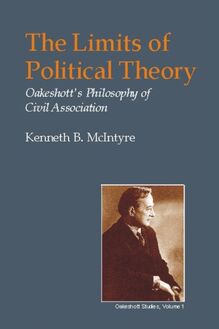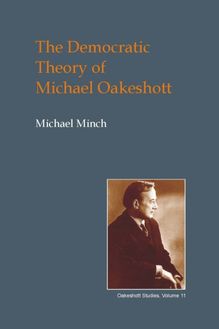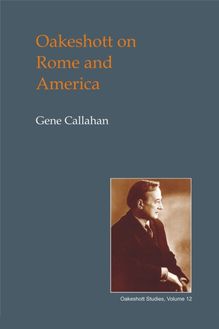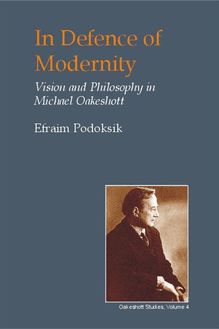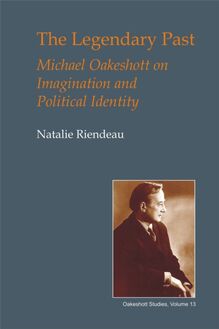-
 Univers
Univers
-
 Ebooks
Ebooks
-
 Livres audio
Livres audio
-
 Presse
Presse
-
 Podcasts
Podcasts
-
 BD
BD
-
 Documents
Documents
-
- Cours
- Révisions
- Ressources pédagogiques
- Sciences de l’éducation
- Manuels scolaires
- Langues
- Travaux de classe
- Annales de BEP
- Etudes supérieures
- Maternelle et primaire
- Fiches de lecture
- Orientation scolaire
- Méthodologie
- Corrigés de devoir
- Annales d’examens et concours
- Annales du bac
- Annales du brevet
- Rapports de stage
La lecture à portée de main
Vous pourrez modifier la taille du texte de cet ouvrage
Découvre YouScribe en t'inscrivant gratuitement
Je m'inscrisDécouvre YouScribe en t'inscrivant gratuitement
Je m'inscrisEn savoir plus
Vous pourrez modifier la taille du texte de cet ouvrage
En savoir plus

Description
Sujets
Informations
| Publié par | Andrews UK |
| Date de parution | 15 octobre 2015 |
| Nombre de lectures | 0 |
| EAN13 | 9781845403805 |
| Langue | English |
Informations légales : prix de location à la page 0,0000€. Cette information est donnée uniquement à titre indicatif conformément à la législation en vigueur.
Extrait
Title Page
The Limits of Political Theory
Oakeshott’s Philosophy of Civil Association
Kenneth B. McIntyre
Copyright Page
Copyright © Kenneth B. McIntyre, 2004
The moral rights of the author have been asserted
No part of any contribution may be reproduced in any form without permission, except for the quotation of brief passages in criticism and discussion.
Originally published in the UK by Imprint Academic
PO Box 200, Exeter EX5 5YX, UK
Originally published in the USA by Imprint Academic
Philosophy Documentation Center
PO Box 7147, Charlottesville, VA 22906-7147, USA
Digital version converted and published in 2012 by
Andrews UK Limited
www.andrewsuk.com
www.imprint-academic.com/idealists
Epigraph
... I lived in quiet, screened, unknown,
Pondering upon some stick or stone,
Or news of some rare book or bird
Latterly bought, or seen, or heard,
Not wishing ever to set eyes on
The surging crowd beyond the horizon,
Tasting years of moderate gladness
Mellowed by sundry days of sadness,
Shut from the noise of the world without,
Hearing but dimly its rush and rout,
Unenvying those amid its roar,
Little endowed, not wanting more.
“A Private Man on Public Men”
Thomas Hardy
“I am ruminating,” said Mr. Pickwick,
“on the strange mutability of human affairs.”
The Pickwick Papers
Charles Dickens
Acknowledgements
During the years it took to complete this project, I have incurred many debts, both literal and metaphorical. Most of the ideas presented here were originally formulated while I was a graduate student at the University of Wales, Swansea and at Tulane University. I am grateful to both institutions for the financial and research support they provided. I would also like to thank Texas Christian University for allowing me to use its library to complete my research. I would like to express my gratitude to Dr. James Patrick and Mr. Harry Lacey of the College of St. Thomas More, and to Dr. Bill McClay of the University of Tennessee, Chattanooga for the encouragement that each provided during the long night of my academic soul. I also want to thank Dr. David Boucher of the University of Wales, Cardiff, Dr. Gerald Gaus and Dr. Nancy Maveety of Tulane University, and Dr. Noël O’Sullivan of the University of Hull for reading the manuscript at various stages during the project and providing invaluable comments on both style and substance. I am extremely grateful to Dr. Martyn Thompson who prompted my interest in Oakeshott and steadfastly assisted me in all my varying efforts to complete the project.
I want to thank my father and mother, Robert and Betty McIntyre who have supported me in whatever I have done in my careering career. Finally, I would like to thank my daughters, Flannery and Juliana, who have provided me with a sense of purpose and a wealth of joy, and my wife, Maria, whose constant love, intellectual and emotional support, and encouragement enabled me to finish what seemed to me an interminable and impossible task.
Introduction
Although Michael Oakeshott is one of the most profound philosophers of political activity in the 20 th century, his ideas have been relatively neglected, and, when studied, they have often been misunderstood. Indeed, the general misunderstanding of his work is one of the main reasons that it has been neglected. In recent years, there have been an increasing number of published studies of Oakeshott’s work, but these studies have tended to confuse as much as clarify. [1] In particular, recent studies of his thought have exhibited two fundamental misreadings of Oakeshott’s work. First, they have perpetuated the initial misconception of Oakeshott by casting his thought primarily in terms of the familiar schools of 20 th century political thought, both practical schools such as conservative, liberal, or postmodernist, and philosophical schools such as Idealist, neo-Kantian, skeptical, or non-foundational. [2] Second, several recent studies of Oakeshott’s work have created new misreadings by claiming to identify radical breaks or major transformations in the development of Oakeshott’s ideas about the relationship between philosophy, practice, history, and political activity. [3]
However, both sets of misreadings serve to obscure the distinctiveness and originality of Oakeshott’s philosophical insights into the nature of politics in the modern world. The first set of writers do so by failing to take seriously, on the one side, Oakeshott’s insistence on the unbridgeable gulf between theorizing practices and engaging in those practices, and, on the other side, his unique kind of philosophical Idealism. In doing so, they have neglected the singularity of Oakeshott’s thought in order to subsume his work under their own various general conceptions of politics and philosophy. The second group of writers compounds and reinforces the errors of the first group because, in identifying a supposed break instead of continuous refinements between Oakeshott’s early, unique Idealism in Experience and Its Modes and his supposed skepticism about philosophical Idealism in Rationalism in Politics and On Human Conduct , its members cut these explorations of the character of political activity loose from their philosophical moorings. [4] In doing so, they reduce Oakeshott’s philosophical claims to mere preferences, leaving his work open to the claim that he is, in fact, merely a conservative, liberal, or postmodern political thinker.
In this book, I offer a reading of Michael Oakeshott’s philosophy of political activity which stresses the underlying continuity of his major writings on the subject and which takes seriously his rigorous pursuit of the implications of understanding the world in terms of modality. [5] The interpretation which emerges in this work suggests strongly that Oakeshott’s philosophy of political activity cannot be reduced to a branch of conservatism, liberalism, or postmodernism. [6] Nor can Oakeshott’s work be reduced to a theory or set of doctrines which fit neatly into any conventional school, like that of Idealism or Skepticism. Rather, Oakeshott’s philosophy of political activity is a challenge, a provocation, to all of the currently dominant schools of political theory and political practice. [7] It questions their presuppositions and exposes as ambiguous, arbitrary, or confused all of the supposed certainties which they take for granted. It does all this by offering profound insights into the nature of political activity in the modern world. I will also have occasion to criticize Oakeshott for inconsistencies, especially in his essays on the historical emergence of modern political activity. However, my primary concern is to bring to light once more the main outlines of Oakeshott’s consistently held and rigorously explored philosophy of human experience in general and modern politics in particular. I will do so by examining Oakeshott’s general understanding of philosophical experience in chapter one, his conception of human conduct in chapter two, his critical philosophy of history in chapter three, his account of the emergence of modern politics in chapter four, and his theory of political activity in chapter five.
In the first chapter, I analyze Oakeshott’s conception of philosophical experience and its relation to what he calls the separate modes of experience. His understanding of philosophical experience as reflection on a unified, concrete, presuppositionless experience provides the criterion by which other forms, or modes, of experience can be judged. For Oakeshott, these modes are arrests in experience, conditional platforms which are constituted by their postulates. The philosopher’s task includes not only the delineation of the nature of philosophy, but the investigation of these various modes of experience in terms of their postulates. Because the postulates which constitute each world are different, the modes are completely independent from each other. Philosophical reflection examines the postulates of the modes and, in so doing, moves beyond the modes. By thus explaining or defining the character of each of the modes, philosophy does not participate in them. In this crucial sense, philosophy is irrelevant to historical, scientific or practical activity. Oakeshott’s insistence on the independence of the modes from each other and from philosophical reflection provides the grounds for his exclusion of scientific and historical explanation from the practical world, and enables him to offer a substantial critique of normative political philosophy.
Chapter two focuses on Oakeshott’s investigation of the character of practice and the inherently traditional nature of human conduct. For Oakeshott, political activity is not an isolated subject to be analyzed in the abstract, but an intelligent activity embedded in the world of practice, and Oakeshott’s concern with this world and the character of traditional activity is as persistent as his concern with the character of political activity. Thus, any adequate judgment of Oakeshott’s contribution to the understanding of political activity depends upon an examination of his understanding of the world of practical activity, or, as he phrases it in his most considered work on the subject, the world of human conduct. His understanding of the character of human conduct is a reflection of the understanding of the character of philosophy and modality discussed in chapter one. He conceives conduct as specific performances emerging from and embedded in practices, or traditions, which condition and are conditioned by those performances. These practices are either instrumental or prudential practices concerned with successful performance or they are non-instrumental
-
 Univers
Univers
-
 Ebooks
Ebooks
-
 Livres audio
Livres audio
-
 Presse
Presse
-
 Podcasts
Podcasts
-
 BD
BD
-
 Documents
Documents
-
Jeunesse
-
Littérature
-
Ressources professionnelles
-
Santé et bien-être
-
Savoirs
-
Education
-
Loisirs et hobbies
-
Art, musique et cinéma
-
Actualité et débat de société
-
Jeunesse
-
Littérature
-
Ressources professionnelles
-
Santé et bien-être
-
Savoirs
-
Education
-
Loisirs et hobbies
-
Art, musique et cinéma
-
Actualité et débat de société
-
Actualités
-
Lifestyle
-
Presse jeunesse
-
Presse professionnelle
-
Pratique
-
Presse sportive
-
Presse internationale
-
Culture & Médias
-
Action et Aventures
-
Science-fiction et Fantasy
-
Société
-
Jeunesse
-
Littérature
-
Ressources professionnelles
-
Santé et bien-être
-
Savoirs
-
Education
-
Loisirs et hobbies
-
Art, musique et cinéma
-
Actualité et débat de société
- Cours
- Révisions
- Ressources pédagogiques
- Sciences de l’éducation
- Manuels scolaires
- Langues
- Travaux de classe
- Annales de BEP
- Etudes supérieures
- Maternelle et primaire
- Fiches de lecture
- Orientation scolaire
- Méthodologie
- Corrigés de devoir
- Annales d’examens et concours
- Annales du bac
- Annales du brevet
- Rapports de stage
